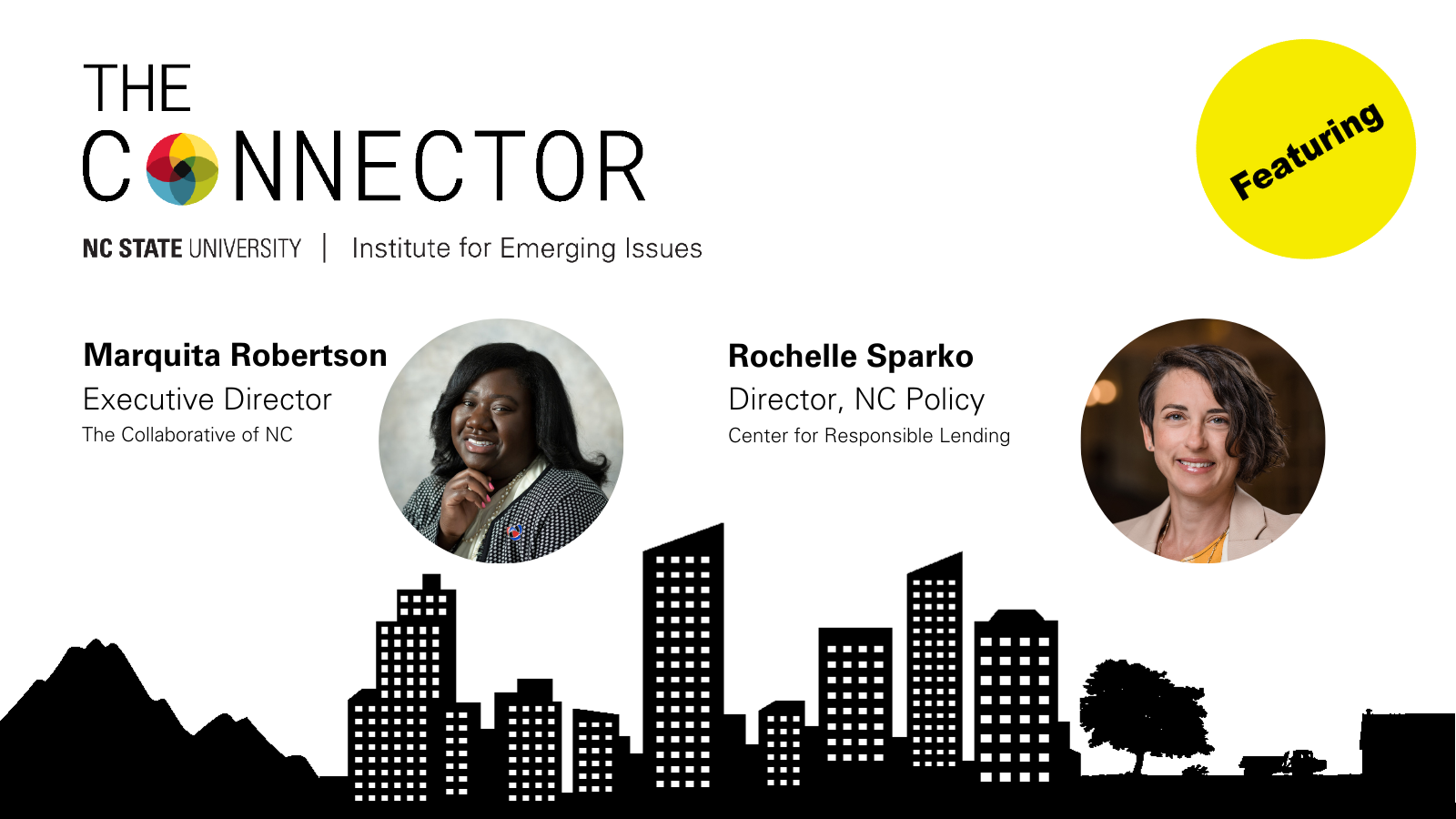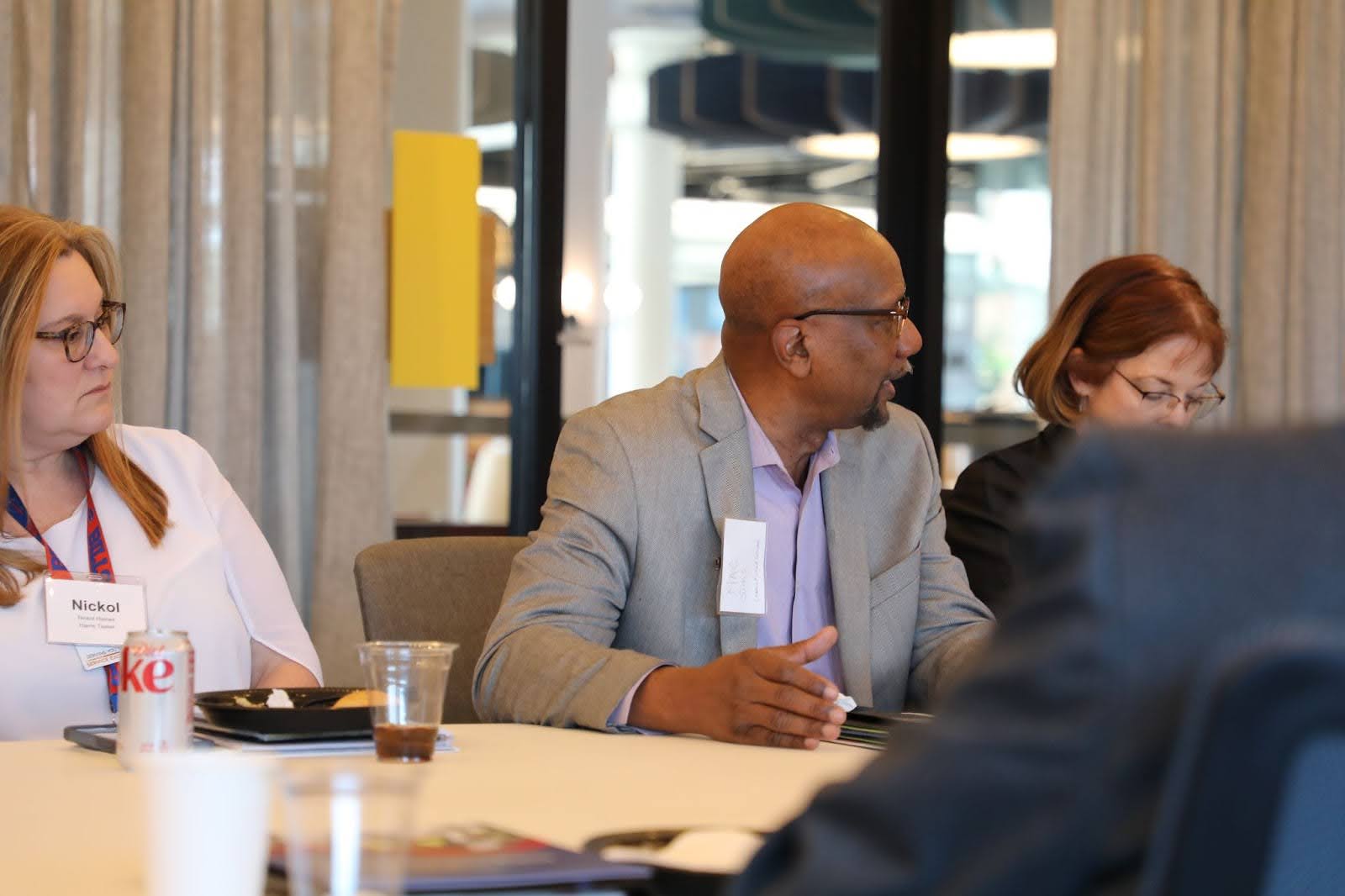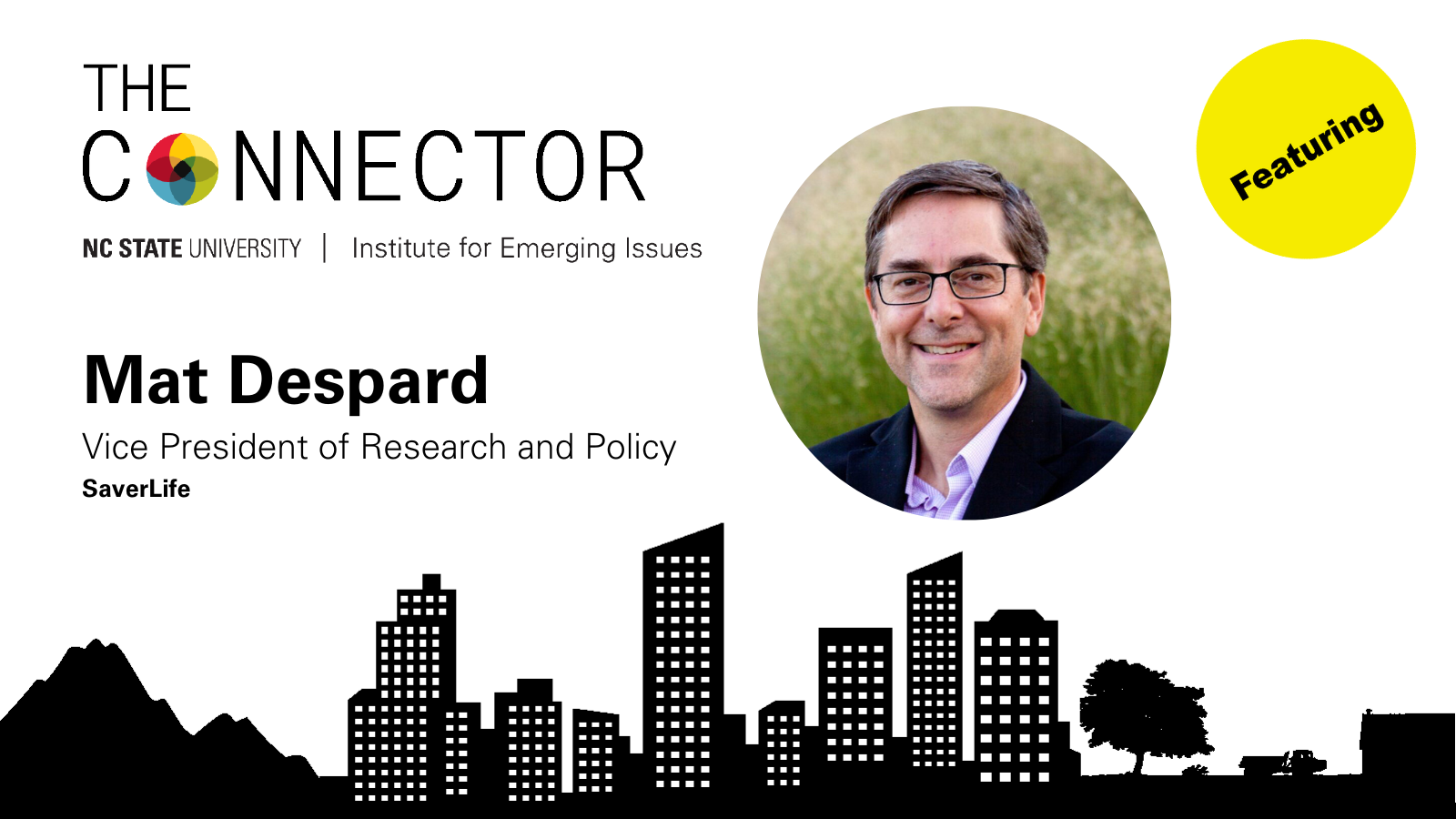Director’s Log | May 2018

In Jonathan Haidt’s book The Righteous Mind, he identifies six virtues that exist in some form in most cultures. People value caring about other people; they have a sense of fairness; they exhibit loyalty; they accept authority; they value sanctity; they care about liberty.
The amount people care about each of these virtues varies from culture to culture and individual to individual: the relative value we place on those virtues effects our personal and political views, decisions and behavior.
For example, those we recognize on Memorial Day are people who were probably particularly motivated by loyalty to country; who acted under authority; who were willing to fight for liberty.
If we try to figure out where the Institute for Emerging Issues new initiative, ReCONNECT NC, fits into Haidt’s array of virtues, I’d say we are looking for people with a sense of loyalty to the communities they live in, who choose to come together to form cohesive teams out of a sense of what Haidt called “group pride” for the places they live in, while responding to a sense of fairness, a belief that they will “reap the benefits of two-way partnership.” We hope to find folks who believe that their communities will be stronger through reconnection, that they will be better together.
There’s ample evidence we are a disconnected state these days. Even as we see lower unemployment, we see declining labor force participation and greater underemployment. We see declines in trust, club and church membership; increases in suicides and drug overdoses, loneliness and partisanship.
But will reconnection make any meaningful difference? Will we be economically more competitive, better educated or healthier if we are better connected—to each other, to our communities and to the state that we live in?
We know intuitively that the more “connections” we have, the more likely we are to find good work and the less likely we are to feel ignored or alone. There’s ample evidence in new books like Our Towns and Healing American Democracy that communities that reconnect and commit to local action on tough challenges can do amazing things. And there is practically a cottage industry of research suggesting that improved connection among people and groups is, in one way or another, associated with everything from higher GDP, improved education, and public health to lower crime rates.
But we don’t know for sure. And that’s what we want to test out. Over the next three years we’ll have a series of forums looking at different aspects of reconnection. Then we’ll try out ideas in 25 communities across the state.
- We will be looking for five places that have energy and ideas about how to get more people participating in civic life, participating in government or club or association activities.
- We want to identify five places interested in building stronger connections between rural and urban communities, taking advantage of different strengths for mutual advantage.
- We want to find five places that are creating market-sensitive pathways for people to increase their skills and abilities to connect to emerging opportunities.
- We hope to find five places that want to improve health outcomes and productivity by better connecting their citizens to services and supports.
- And we are looking for five places that have ideas about how to use digital infrastructure more effectively to build connectedness.
We’ll connect the communities in each group to each other and highlight their progress at each of our Forums.
And we’ll learn, together, from successes and failures, and develop models for how other places throughout the state can make progress on their particular connectedness goals.
But it starts with you. If your community is working on one of these issues, or if you have a group of people who are ready to get started, we’d like you to join with us.
Let us know and let’s get started on ReCONNECT NC!
–Leslie
- Categories:


